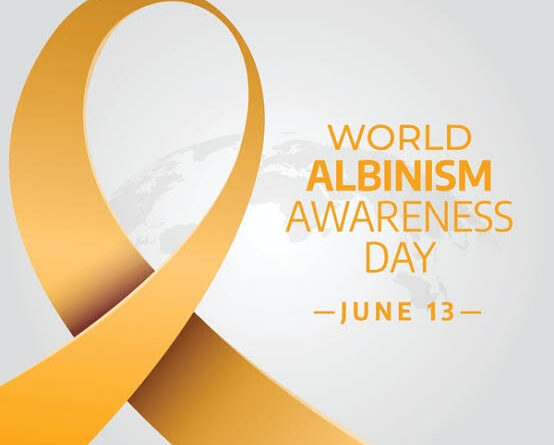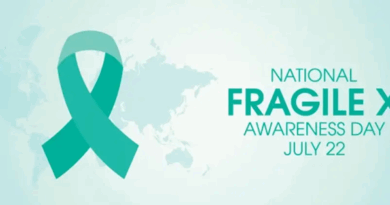International Albinism Awareness Day: Shining a Light on Inclusion and Rights
International Albinism Awareness Day is observed annually on June 13 to celebrate the achievements and raise awareness about the challenges faced by individuals with albinism. This day emphasizes the importance of inclusion, equality, and the protection of the rights of people living with albinism worldwide.
Understanding Albinism
Albinism is a rare, non-contagious, genetically inherited condition present at birth. It results in a lack or complete absence of melanin pigment in the skin, hair, and eyes, leading to increased vulnerability to sun exposure and bright light. This condition affects individuals of all ethnic backgrounds and is found globally.(UN News, United Nations)
Key Facts:
- Prevalence:
- North America & Europe: Approximately 1 in 17,000 to 20,000 people
- Sub-Saharan Africa: As high as 1 in 1,000 in certain populations (United Nations, UN News)
- Health Implications:
- Increased risk of skin cancer due to sun sensitivity
- Visual impairments are common(National Today)
- Social Challenges:
- Discrimination and stigmatization
- Violence and human rights violations in some regions(Medindia)
Global Statistics on Albinism
Understanding the prevalence and challenges of albinism is crucial for effective advocacy and support.(National Today)
Prevalence by Region
| Region | Estimated Prevalence |
|---|---|
| North America & Europe | 1 in 17,000 to 20,000 |
| Sub-Saharan Africa | Up to 1 in 1,000 in some areas |
| India | Estimated 100,000 to 200,000 cases |
Source: UN Observances, MedIndia(Medindia)
Health Risks
| Health Concern | Description |
|---|---|
| Skin Cancer | High risk due to lack of melanin protection |
| Visual Impairments | Common, requiring corrective measures |
| Life Expectancy | Reduced in some regions due to lack of healthcare access |
Challenges Faced by Individuals with Albinism
Discrimination and Stigmatization
People with albinism often face social exclusion, discrimination, and stigmatization. In some cultures, myths and misconceptions lead to harmful practices, including violence and killings.(UNESCO)
Healthcare Access
Limited access to healthcare services, including dermatological and ophthalmological care, exacerbates health risks. In many low-income countries, essential resources like sunscreen and protective clothing are scarce.
Education and Employment
Visual impairments and social stigma can hinder educational opportunities and employment prospects, leading to economic disadvantages.
International Albinism Awareness Day 2022 Highlights
The 2022 observance focused on the theme “United in making our voice heard,” emphasizing the importance of solidarity in advocating for the rights of individuals with albinism.
Notable Initiatives:
- Global Campaigns: Various organizations conducted awareness campaigns to educate the public and combat stigma associated with albinism.
How to Support Individuals with Albinism
- Advocate for Inclusive Policies: Support legislation that protects the rights of individuals with albinism.(United Nations)
- Support Organizations: Donate to or volunteer with organizations working to improve the lives of people with albinism.
- Promote Representation: Encourage media and institutions to represent individuals with albinism accurately and positively.
FAQs
Q1: What is the purpose of International Albinism Awareness Day?
A1: To raise awareness about albinism, combat discrimination, and promote the rights and inclusion of individuals with albinism globally.
Q2: How prevalent is albinism worldwide?
A2: It varies by region, with higher prevalence in Sub-Saharan Africa (up to 1 in 1,000) and lower in North America and Europe (approximately 1 in 17,000 to 20,000).(United Nations)
Q3: What are the main health concerns for people with albinism?
A3: Increased risk of skin cancer due to sun sensitivity and visual impairments requiring corrective measures.(National Today)
Q4: How can I support individuals with albinism?
A4: Educate yourself and others, advocate for inclusive policies, support relevant organizations, and promote positive representation.
Conclusion
International Albinism Awareness Day serves as a vital platform to highlight the challenges faced by individuals with albinism and to advocate for their rights and inclusion. By educating ourselves and others, supporting inclusive policies, and promoting accurate representation, we can contribute to a more equitable and understanding society.
For more information and resources, visit the United Nations Albinism Awareness Day page.





